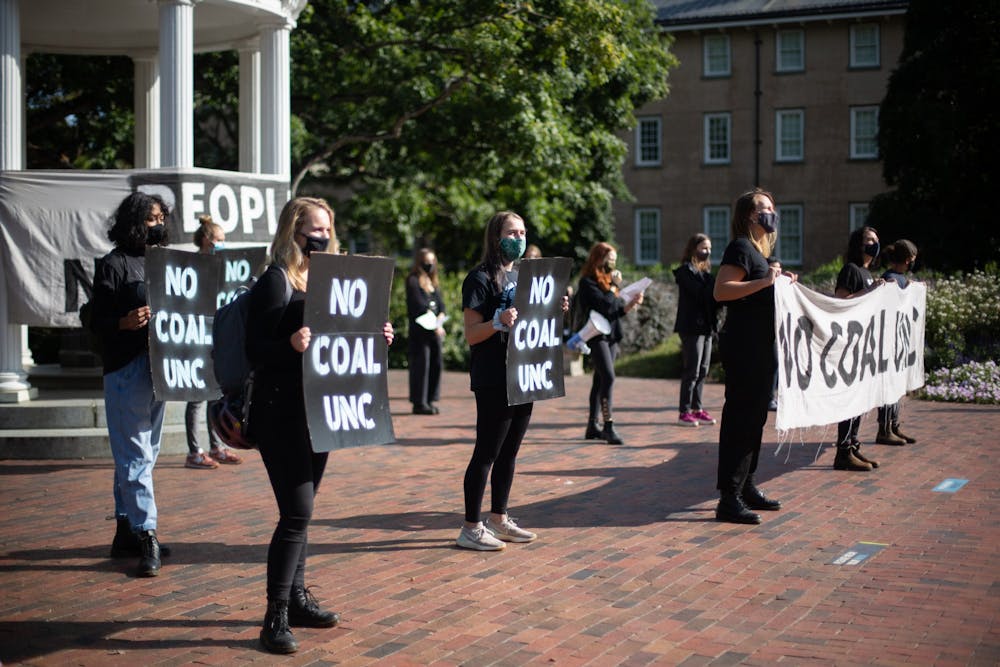From Hurricane Florence, which devastated our state in 2018, to the blazing wildfires in California, there is no doubt that we are living in the middle of a climate crisis.
Unfortunately, despite claiming to be a beacon of social progress, UNC directly funds the climate crisis through its investments in the fossil fuel industry.
All universities have an endowment, which is a pool of money that primarily consists of charitable donations used for school-sanctioned projects, as well as for investments to grow the endowment. UNC’s endowment is controlled by a nonprofit organization called the UNC Management Company. UNCMC not only supervises UNC-Chapel Hill’s investments, but also manages investments for many of the UNC System schools, which are pooled in a $6.5 billion commingled fund.
In the 2019 annual report, UNCMC reported that 6.8 percent of its endowment, or roughly $442 million, was invested into the category “Energy and Natural Resources." Given that $21.5 million is reported to be invested in clean energy, there is roughly $420.5 million that remains for the fossil fuel industry.
However, because UNCMC is a private entity, there is no obligation to release any information beyond these numbers. With this egregious lack of transparency, it is clear that the UNCMC is willing to commodify the risks of the climate crisis for profit.
When it comes to leading the fight against the fossil fuel industry, UNC is coming in last, especially in comparison to our peer institutions. For example, the University of California committed to the full divestment of its $126 billion endowment in May. The student body presidents from every school in the Big Ten conference, including the University of Michigan, have called on their institutions to divest from fossil fuels, and UNC Asheville divested 10 percent from fossil fuels in 2019.
Although we are neck and neck with UC Berkeley and the University of Michigan in national rankings, by not diversifying our portfolios from the risks of the fossil fuel industry, it is only a matter of time before we lose our competitive edge.
In addition to damaging the planet, fossil fuel investments may prove damaging to UNC’s investments as well. Investors are starting to consider fossil fuels to be stranded assets due to their underwhelming results and significant environmental and economic costs. As a result of the University's under-preparedness for the pandemic, we already took a significant hit to our budget from COVID-19. UNC cannot endure any more financial losses, and our investments in the fossil fuel industry are not worth the risk anymore.
On the contrary, renewable energy has shown inclining returns over recent years. In 2018, North Carolina was ranked second nationally in solar energy, showcasing how renewable energy investments have become a promising part of our local economy. By investing in renewable energy, we are not only investing in our extended Carolina community, but we are also mitigating UNC’s contributions to the climate crisis and the future damages it will cause.



